Maximum versatility
×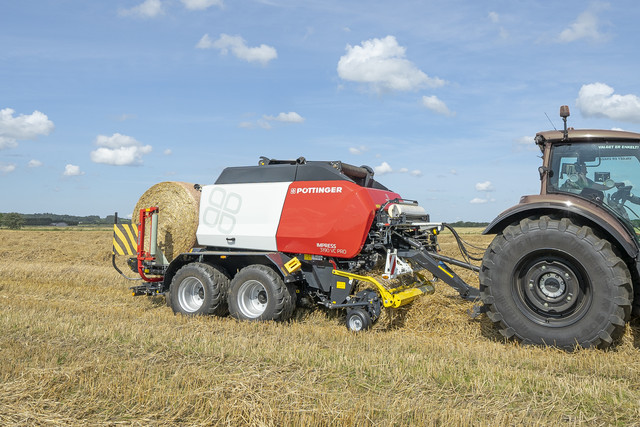
Proficient at all baling tasks
The key principle in the development of the IMPRESS round baler was to enable maximum versatility. Changing crops often means the machine needs to be adjusted to the new operating conditions. Although a short chopped length and maximum bale density are in demand for making silage, they are less important for harvesting hay.
For contractors, the requirements can change several times a day. PÖTTINGER gives you a number of features to react quickly. That makes the IMPRESS a reliable all-rounder.
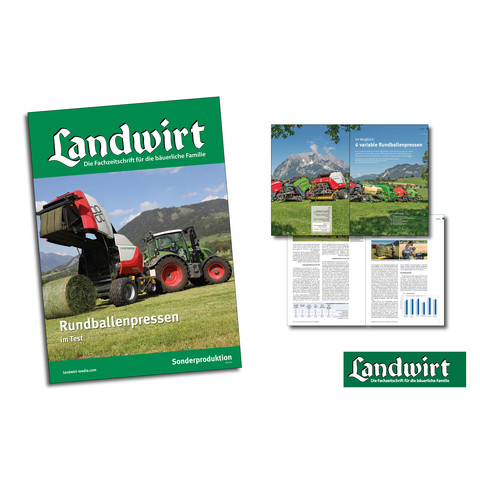
Limitations redefined
The fixed chamber baler is still regarded worldwide as a strong silage specialist, although nowadays variable chamber balers are not only flexible in the bale size but also in the type of crop.
Dubbed "The Challenger" by the farming press, the IMPRESS V sets the new benchmark for variable chamber round balers. With a high bale density, high throughput as well as the lowest power requirement, despite the shortest chopped length, the overall package packs a serious punch to make it the most energy-efficient baler in the comparison.*
*Source: LANDWIRT 2/2021 "Put to the test - 6 variable round balers"
Short thought
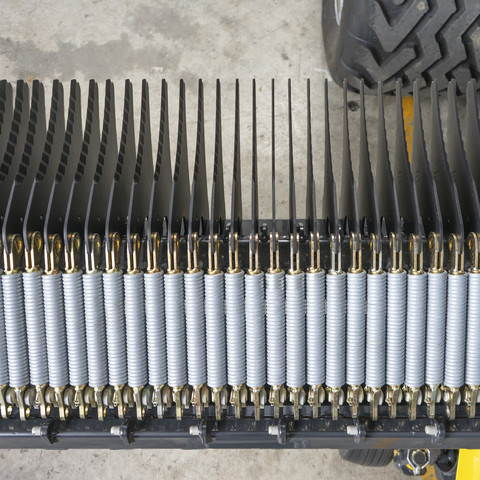
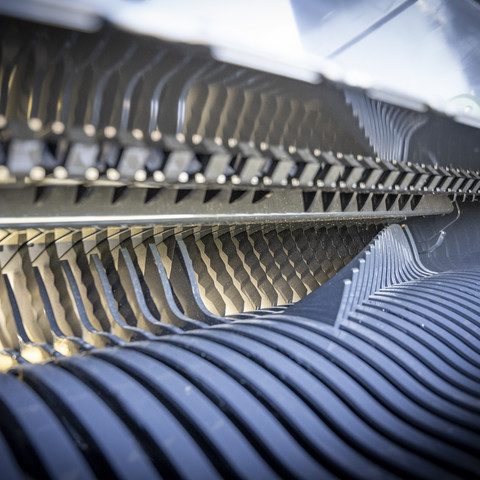
A chopping system makes a significant contribution to the versatility of a round baler. PÖTTINGER, leader in the loader wagon market, knows how that is done. Short chopped length for silage; long chopped length for ventilated hay and straw, depending on the requirements. With 32 knives and a theoretical chop length of 36 mm, loader wagon chopping quality is now available for the first time on round balers.
Italian farm appreciates flexibility
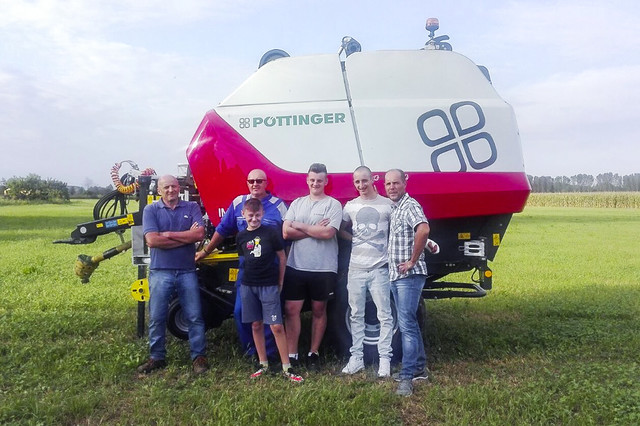
Farming business Azienda Agricola Boldini Filli s.s. has a wide spectrum of crops, all of which can be baled using the IMPRESS. In terms of quality and looking at the weld seams, they are reliable and strong. The optimum chopping quality and the perfect ground tracking of the machine guarantee us the best forage quality. We straightaway used the IMPRESS to harvest silage, hay and straw. And the IMPRESS convinced us." Boldini also explained that the IMPRESS delivered good results when used with a 100 hp tractor.
Giancarlo Boldini, Farm Manager Azienda Agricola Boldini Filli s.s. Milan | Italy
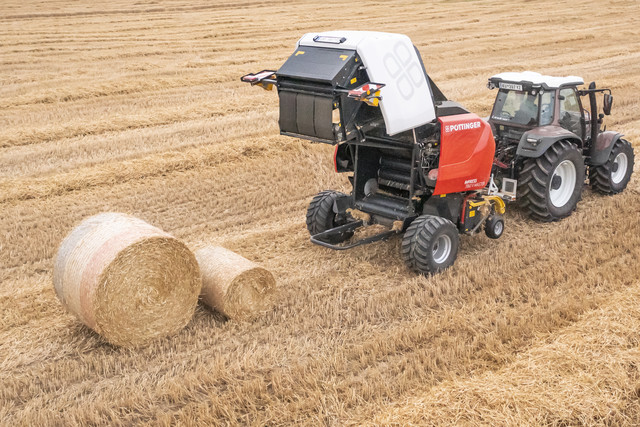
Compaction on demand
Highly compacted, heavy bales reduce the number of bales needed. This saves net, film and above all transport costs. Short chopped material can be compacted better. However, high density bales are not always required. If the hay is still to be aerated or even ventilated, the baler needs to be able to react flexibly to these requirements. The baling pressure on the IMPRESS can be quickly adjusted using the control terminal in the tractor cab.
Bale size on demand
The size of the bales depends on what they are going to be used for. Conditions in the field as well as transport and storage logistics can also play a role.
While bales around 1.3 metres in diameter can be produced using the fixed chamber baler, variable chamber balers offer infinite flexibility between 0.8 and 1.55 metres, or even up to 1.85 metres. The bale size is conveniently set at the control terminal.
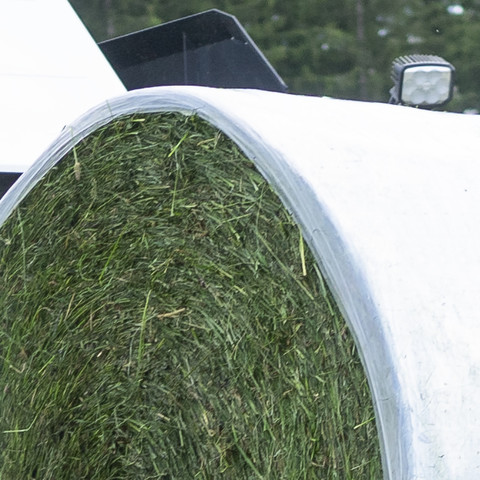
Silage
The short chopped length of 36 mm enables higher compaction and heavier bales. Highly compacted wilted material has better and faster PH value reduction and therefore improved fermentation stability. In addition, short chopped silage is quicker and easier to break up. This saves time and energy. The optional film & film binding further increases the quality of the silage.
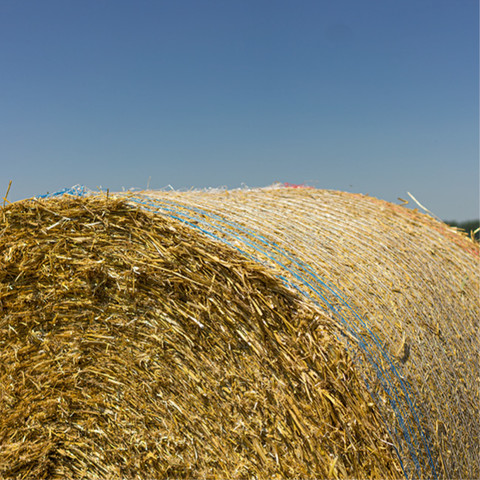
Straw
Short chopped straw can be compacted better. Higher bale weights and a lower number of bales are the immediate advantages. When the bales are consumed later on, you have additional savings in post-shredding, which is also often very dust-intensive. Because the straw has already been chopped short by the IMPRESS, it is more absorbent. In addition, the bales are easier to break up and add to a mixed ration thanks to the short chop length. In the field, balers with chopping systems are much more fuel efficient than a baler with a front-mounted straw chopper.
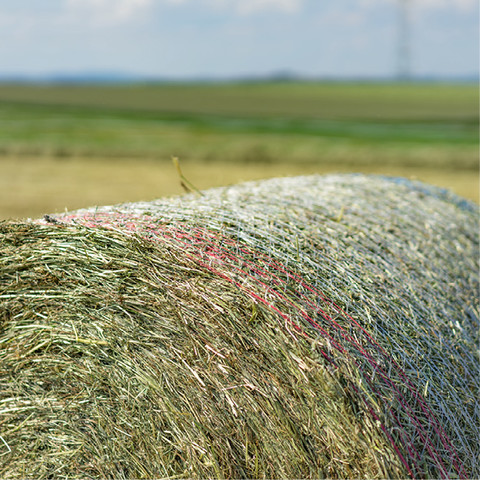
Hay
When working with hay, the knives are often not needed or the number of knives is greatly reduced. The individual number of knives allows quick adaptation to the operating conditions. In addition, the hay can be optimally compacted for subsequent drying or active ventilation. With the soft core control on the variable baler, the soft bale core familiar on fixed chamber balers can be perfectly adjusted. The energy costs for bale ventilation can be dramatically reduced as a result.